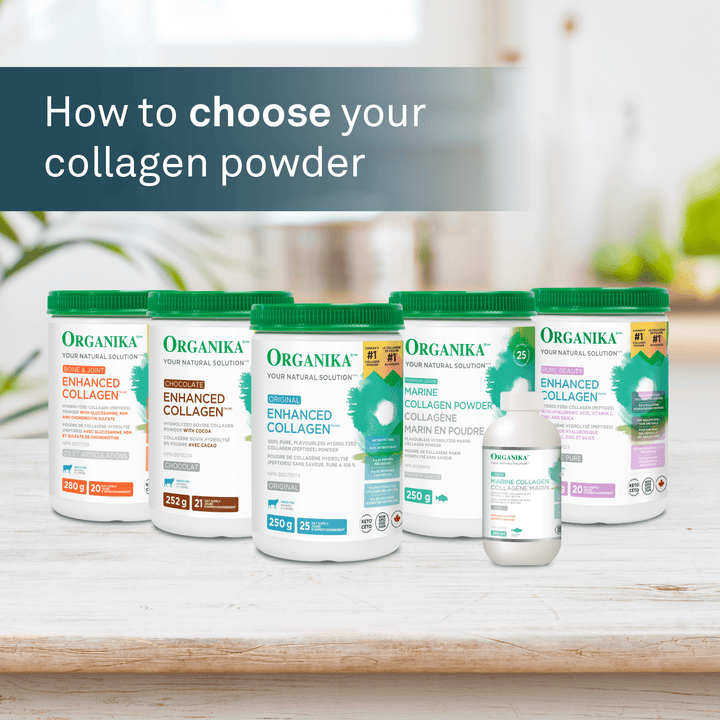
You’ve heard all the hype around Enhanced Collagen powder. You know that it is essential for healthy skin, nails and hair growth. It also can can help to reduce joint pain and inflammation. However most collagen supplements are animal based, usually from marine, poultry or bovine sources. So if you are plant-based, you may think you can't increase collagen production in your body. But plant-based eaters, fear not! You too, can increase collagen production with the help of a few boosters, especially with Vitamin C!
First, let chat a bit about collagen production.
If you’ve checked out our blog, you already know that collagen has some amazing benefits. Along with that, you likely have read about the different types of collagen, what each one does, and know that our body’s ability to produce collagen starts decreasing as we age.What do you need to know to increase collagen production?
1. Free radicals Free radicals, from things like refined sugar, too much sun exposure or environmental toxins. How we can combat this? With a diet high in antioxidants! Ensuring you are eating a diet high in antioxidants, particularly Vitamins A, C, E, along with minerals selenium and zinc, is important to help boost your collagen production, especially if you are not consuming it in supplement form. With this understanding, one ingredient to add to your collagen boosting arsenal is the moringa plant. This plant, which you may have heard of before for its high iron content and as it is one of the few complete protein sources in the plant world, is also composed of something called Ben oil, that is rich in antioxidants.


